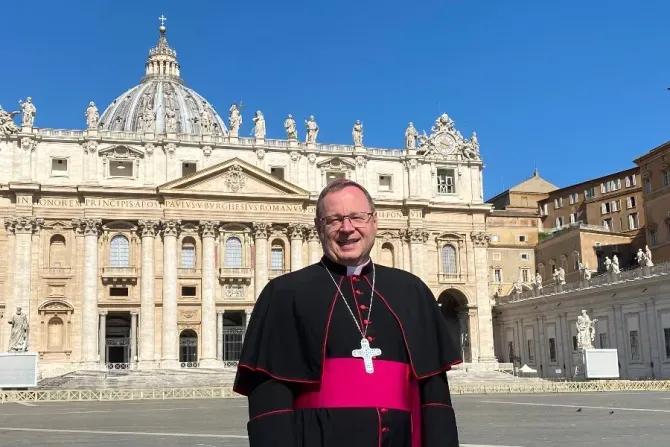The committee would be chaired by the president of the bishops’ conference and “the president(s) of the ZdK.”
The permanent synodal council would function “as a consultative and decision-making body on essential developments in the Church and society,” the German proposal states.
More importantly, it would “make fundamental decisions of supra-diocesan significance on pastoral planning, questions of the future, and budgetary matters of the Church that are not decided at the diocesan level.”
Critics of the plan have drawn comparisons to communist Soviets and accused the German bishops of reinventing existing Protestant structures.
In June 2022, Cardinal Walter Kasper, a theologian considered close to Pope Francis, said there could be no “synodal council,” given Church history and theology: “Synods cannot be institutionally made permanent. The tradition of the Church does not know a synodal Church government. A synodal supreme council, as is now envisaged, has no basis in the entire history of the constitution. It would not be a renewal, but an unheard-of innovation.”
(Story continues below)
Kasper has previously accused the organizers of the German Synodal Way, also known as the “Synodal Path,” of using a "lazy trick" that constituted a coup d’etat.
The president emeritus of the Pontifical Council for Promoting Christian Unity, who was bishop of the Diocese of Rottenburg-Stuttgart from 1989 to 1999, said the German process had invited comparisons to communist structures in the Soviet Union: “It was a political scientist, not a theologian, who recently expressed this notion somewhat strongly, referring to such a synodal council as a supreme soviet.”
The cardinal continued: “‘Soviet’ is an old Russian word that means exactly what we call a ‘Rat,’ a council in German. Such a supreme soviet in the Church would obviously not be a good idea. Such a council system is not a Christian idea, but an idea coming from quite a different spirit or un-spirit. It would choke off the freedom of the Spirit, which blows where and when it wants, and destroy the structure that Christ wanted for his Church.”
Further concerns were raised by a professor of theology from the University of Vienna.
The dogmatist Jan-Heiner Tück warned that a German “synodal council” would transfer leadership authority “from sacramentally ordained persons to bodies, a conversion of power that shows a clear closeness to synodal practices in the Protestant Church in Germany.”
From the outset, the German Synodal Way, which is not a synod, has courted controversy.
In June 2019, Pope Francis sent a 19-page letter to Catholics in Germany urging them to focus on evangelization in the face of a “growing erosion and deterioration of faith.”
The president of the German bishops’ conference, Bishop Bätzing of Limburg, has repeatedly rejected concerns and instead expressed disappointment in Pope Francis in May 2022.
In November of last year, following an encounter with Pope Francis and the Roman Curia, Bätzing said Rome might once again summarize “its objections, its concerns” of the German process. However, the Synodal Way had made its decisions, also concerning a permanent synodal council, Bätzing added.
In an interview published one month later, in June, Pope Francis reiterated that he told Bätzing that the country already had “a very good Evangelical [Lutheran] Church” and “we don’t need two.”
Pope Francis lamented the “erosion” of the faith in Germany at the visit of the German bishops to Rome in 2015.
“Excessive centralization, instead of helping, can complicate the life of the Church and her missionary dynamic,” the pope warned the German prelates in November 2015.
AC Wimmer is the News Editor for Europe and Asia at EWTN News. The multilingual Australian, raised in Bavaria and South Africa, served as editor-in-chief of several news media outlets. A graduate in Philosophy and Chinese Studies from the University of Melbourne, the veteran journalist is a former Honorary Research Fellow in Communications at his alma mater and served on the Board of Caritas in Munich.





